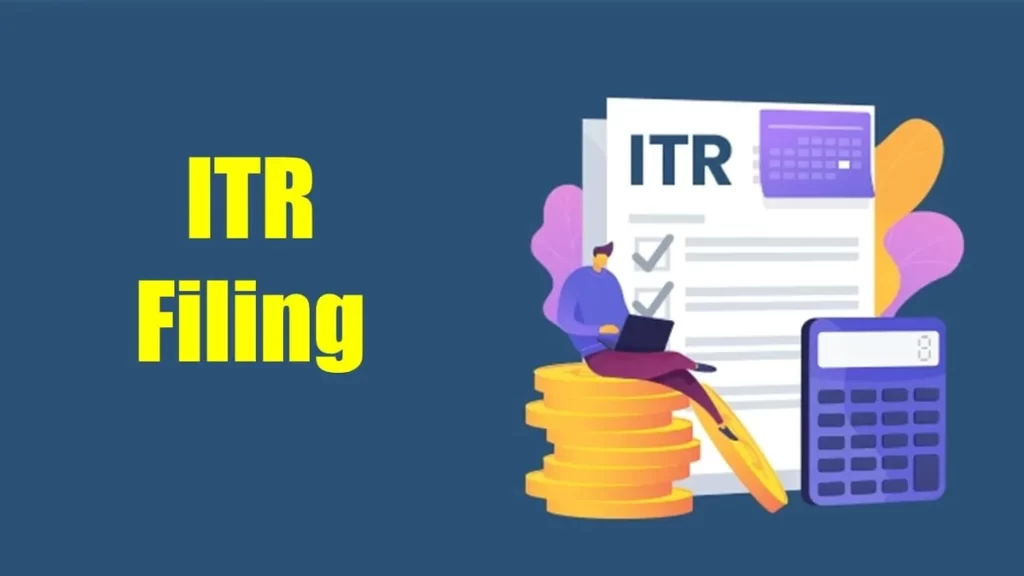Filing ITR, In India, not everyone is required to file an income tax return (ITR). The requirement to file an ITR depends on various factors, including the individual’s age, income level, and the type of income earned during the financial year.
Here are some general guidelines regarding who needs to file Filing ITR:
Mandatory Filing:
It is mandatory for individuals to file an filing ITR if their total income exceeds the basic exemption limit set by the income tax department. The exemption limits vary based on age and other criteria.
For example, for the financial year 2022-23 (assessment year 2023-24), the basic exemption limits for individuals below 60 years of age are as follows:
Up to Rs. 2.5 lakhs: No tax filing required
Rs. 2.5 lakhs to Rs. 5 lakhs: ITR filing required, but no tax liability
Above Rs. 5 lakhs: ITR filing required, and tax liability may apply
Reporting Foreign Assets: If you hold any foreign assets or have income from foreign sources, you are require to file an ITR, regardless of the income threshold.
Claiming Refund: If you are eligible for an income tax refund because excess tax was deduct from your income, you need to file an ITR to claim the refund.
Certain Specified Transactions:
Individuals who have engaged in specific financial transactions, such as buying or selling immovable property, high-value transactions, or transactions in the stock market, may be required to file an ITR, even if their income is below the exemption limit.
It’s important to note that even if you are not require to file an ITR, it is advisable to do so voluntarily if you have taxable income, as it helps in establishing a documented financial history and can be useful for various purposes like loan applications, visa processing, etc.
The exact rules and requirements for filing an ITR can change from year to year, so it’s essential to refer to the latest guidelines issue by the income tax department or consult a tax professional to determine your specific filing obligations.
To visit https://www.incometax.gov.in
FAQs
1.Who needs to file ITR in India?
Ans: Anyone whose income exceeds the basic exemption limit must filing ITR. This includes salaries, business income, and other earnings.
2. What is the basic exemption limit?
Ans: For individuals below 60 years, the limit is ₹2.5 lakhs; for seniors between 60-80 years, it’s ₹3 lakhs; and for those above 80, it’s ₹5 lakhs.
3. Do salaried employees need to file ITR?
Ans: Yes, if their income exceeds the exemption limit, even if TDS (Tax Deducted at Source) is deducted.
4. Do I need to filing ITR if my income is below the exemption limit?
Ans: No, unless you want to claim a refund or if specific conditions apply, like foreign travel or deposit exceeding ₹1 crore in a bank.
5. Is it mandatory for NRIs (Non-Resident Indians) to file ITR?
Ans: NRIs need to file ITR if they earn more than ₹2.5 lakhs in India during a financial year.
6. Do pensioners need to file ITR?
Ans: Yes, if their total income (including pension) exceeds the exemption limit.
7. Do freelancers or self-employed individuals need to file ITR?
Ans: Yes, if their earnings cross the exemption limit.
8. Do I need to file ITR if I have only investment income?
Ans: Yes, if the income from investments, such as interest or dividends, exceeds the exemption limit.
9. What happens if I don’t file ITR when required?
Ans: You may face penalties, interest on unpaid taxes, and may not be able to claim refunds.
10. Can I file ITR voluntarily even if I am not required to?
Ans: Yes, you can file voluntarily to keep a record of your income and claim any applicable refunds.

